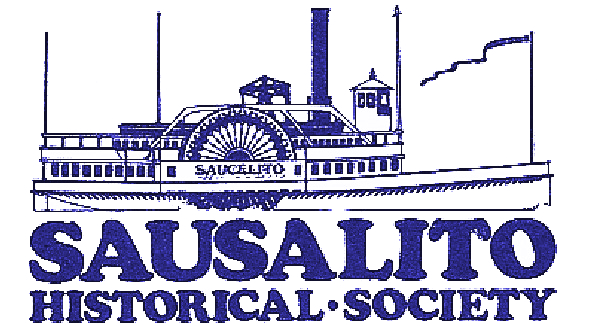By Jim Scriba and Larry Clinton, Sausalito Historical SocietyRichard Diebenkorn became the most famous of the “Sausalito 6” school of artists.
Photo courtesy of Sausalito Historical Society
When World War II ended in 1945, servicemen and women came home and sought to create lives with renewed purpose. Among them aspiring artists, writers and musicians began enrolling in schools like the California School of Fine Arts (now the San Francisco Academy of Art). As long time Historical Society member Liz Robinson has pointed out, “Men, especially, were out to fulfill some of their dreams and regain lost time.” The G.I. Bill gave folks the freedom to mold those dreams.
When Marinship closed abruptly in 1946, the Bechtel Corp. turned the property over to the U.S. Army Corps of Engineers, which needed only a portion of the sprawling facility for their operations. The rest of Marinship was sold off piecemeal by sealed bid auctions. Waterfront fixture Don Arques was buying up and anchoring scrapped work boats, barges and ferries and inviting artists to establish rent-free studios and living spaces. Sausalito was primed to host this post-war "avant garde" and play a key role in influencing the San Francisco Renaissance.
In 1947 painter Frank Lobdell moved to Sausalito and began attending the California School of Fine Arts on the G.I. Bill. Artists Jean Varda and Gordon Onslow Ford bought the ferryboat Vallejo and set up a floating studio. Scientist Bern Porter left Princeton University when he became aware that his research was being used on the atomic bomb and moved to Sausalito where he opened two art galleries, the Schillerhaus on 603 Main Street in Hurricane Gulch, and the Contemporary Gallery downtown. Richard Diebenkorn began a teaching position at the CSFA that lasted until 1950.
The following year, Victor Di Suvero bought and ran the Contemporary Gallery to further its mission to host the work of local Sausalito artists. Six artists attending the California School of Fine Arts, Diebenkorn, Walter Kuhlman, James Budd Dixon, John Hultberg, Frank Lobdell, and George Stillman created a portfolio titled “Drawings,” now considered an important milestone in the Abstract Expressionism movement. These Modernists became known as "The Sausalito Six," because they lived and worked in Sausalito studios. German Jewish refugee Gerd Stern moved to the Bay Area and took a job at radio station KPFA in Berkeley where he launched a poetry show and recorded notables including Allen Ginsberg, Harry Partch, Henry Jacobs, and Michael McClure. Stern was well connected with the art movement in Sausalito and would eventually buy a barge and move here. Peggy Tolk-Watkins opened “The Tin Angel'’ (now Scoma’s) on Sausalito's waterfront, which soon became a gathering place for noted jazz musicians and folk singers. Edith and Brian Heath founded Heath Ceramics in Sausalito.
On Sunday, September 11, 1949 an event took place to celebrate the 200th anniversary of Johann Wolfgang Von Goethe. This all-media, open air Art Show, with exhibits by most of the current Sausalito artists, is considered the forerunner of the Sausalito Art Festival. In late September, the Regatta Days event included sailboat races, shell, obstacle and row boat races, and an illuminated boat contest. On shore it included the elaborately-costumed Centennial pageant, “The Golden Fleece,” and no less than 15 art and craft shows that included 100 artists. In November, James Broughton’s film “Mother's Day'' with music by Howard Brubeck won honorable mention at the International Film Festival in Belgium. By 1949, Heath Ceramics was producing 100,000 pieces a year, and providing day jobs for many community artists.
To celebrate Sausalito’s artistic emergence, the Sausalito Historical Society presents the exhibit:
"The Sausalito Renaissance and the Birth of Mid Century Modern in Sausalito.” The exhibit will include art and information from and about: James Broughton, Peggy Tolk-Watkins, James Budd Dixon,
John Hultberg, Walter Kuhlman, Enid Foster, Blanche Phillips, Harry Partch, Jean Varda, Mel Fowler, Loyola Fourtane and other creative luminaries. It opens November 20 in the gallery of the Bay Model. An opening reception will be held on Saturday, December 1 from 1-3 p.m.

